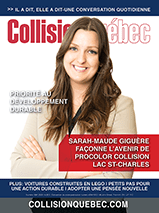Quebec City, Quebec — New data from Société de l’assurance automobile du Québec (SAAQ) indicates that evening road accidents—including those involving pedestrians—greatly increase in the 30 days following the fall time change.
Specifically, according to the report, between 2019 and 2023, the average number of injury-causing accidents across the province between 5:00 and 8:00 p.m. rose by more than 25 percent in the weeks following the fall time change. This represents an increase from 287 to 359 collisions, on average.
Additionally, the data indicates that collisions were also up over the entire course of the days following the time change, by 3.8 percent.
Comparatively, the spring time change reportedly has the opposite effect, with the number of crashes over the course of the day dropping by nearly 24 percent in the 30 days following the clocks springing ahead. Between 5:00 and 8:00 p.m., crashes also dropped by more than 27 percent.
When looking at collisions involving pedestrians, auto accidents rose by more than 78 percent following the fall time change from an average of 41 percent. Following the beginning of the spring time change, however, this number drops by 44 percent to 20 accidents from an average of 36.
According to The Canadian Press, Gino Desrosiers, a spokesman for the insurance board, commented that “October and November are historically the most dangerous for pedestrians, because the evenings are dark and drivers have poor visibility. Shifting the clocks back in the fall makes it darker during rush hour when more people are on the roads.”
For more information, click here.
The post Time Troubles: Collisions increase from average of 287 to 359 in Quebec following fall time change, says new SAAQ report appeared first on Collision Repair Magazine.






















